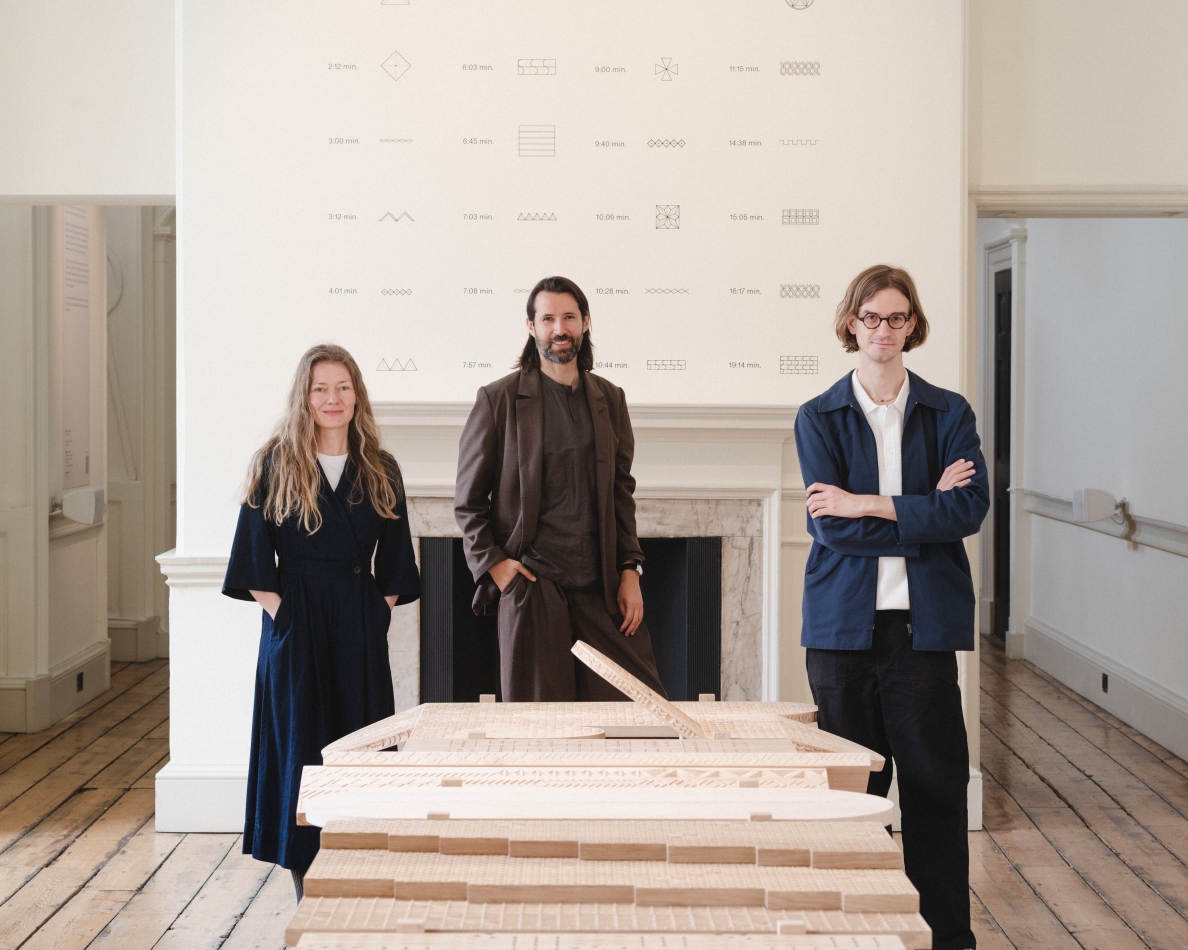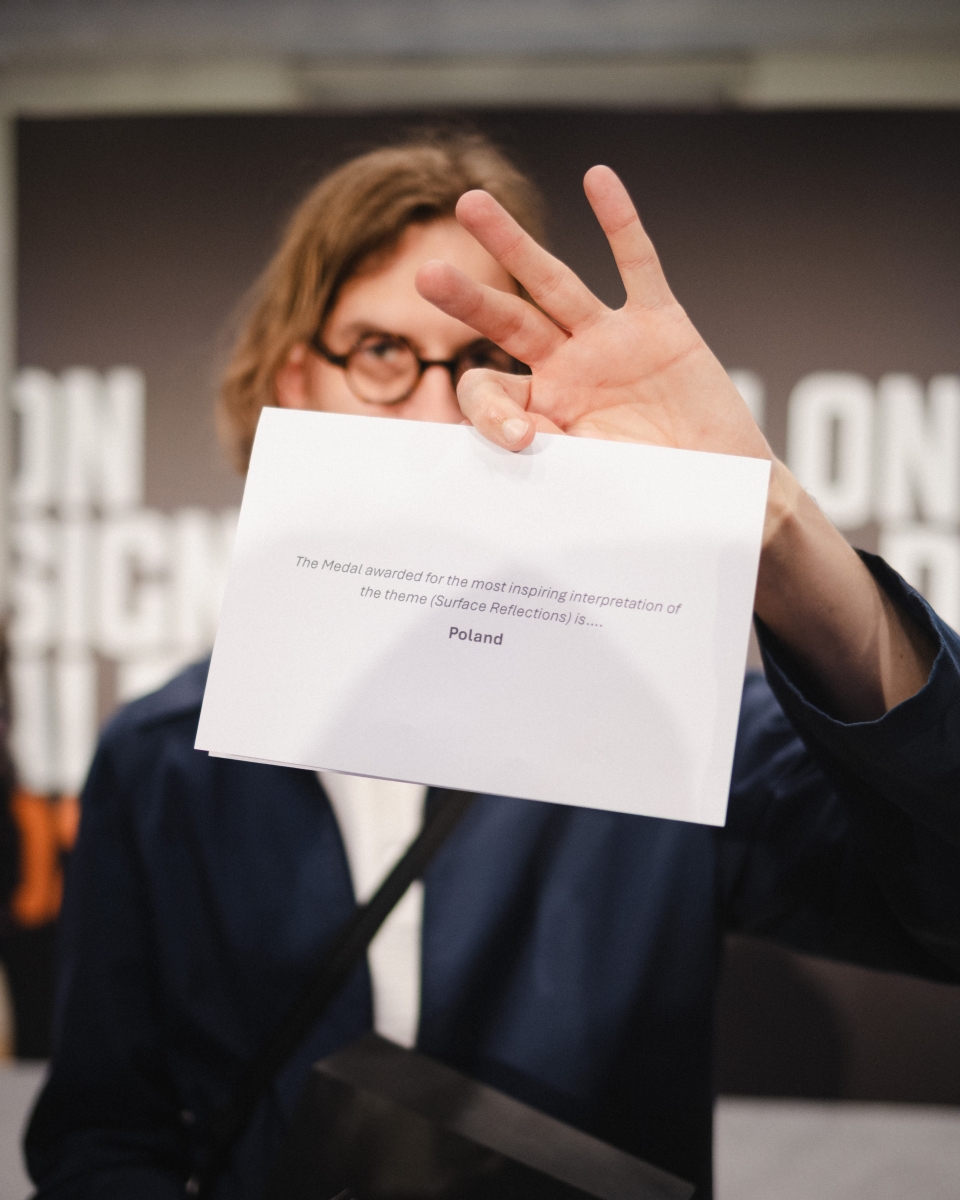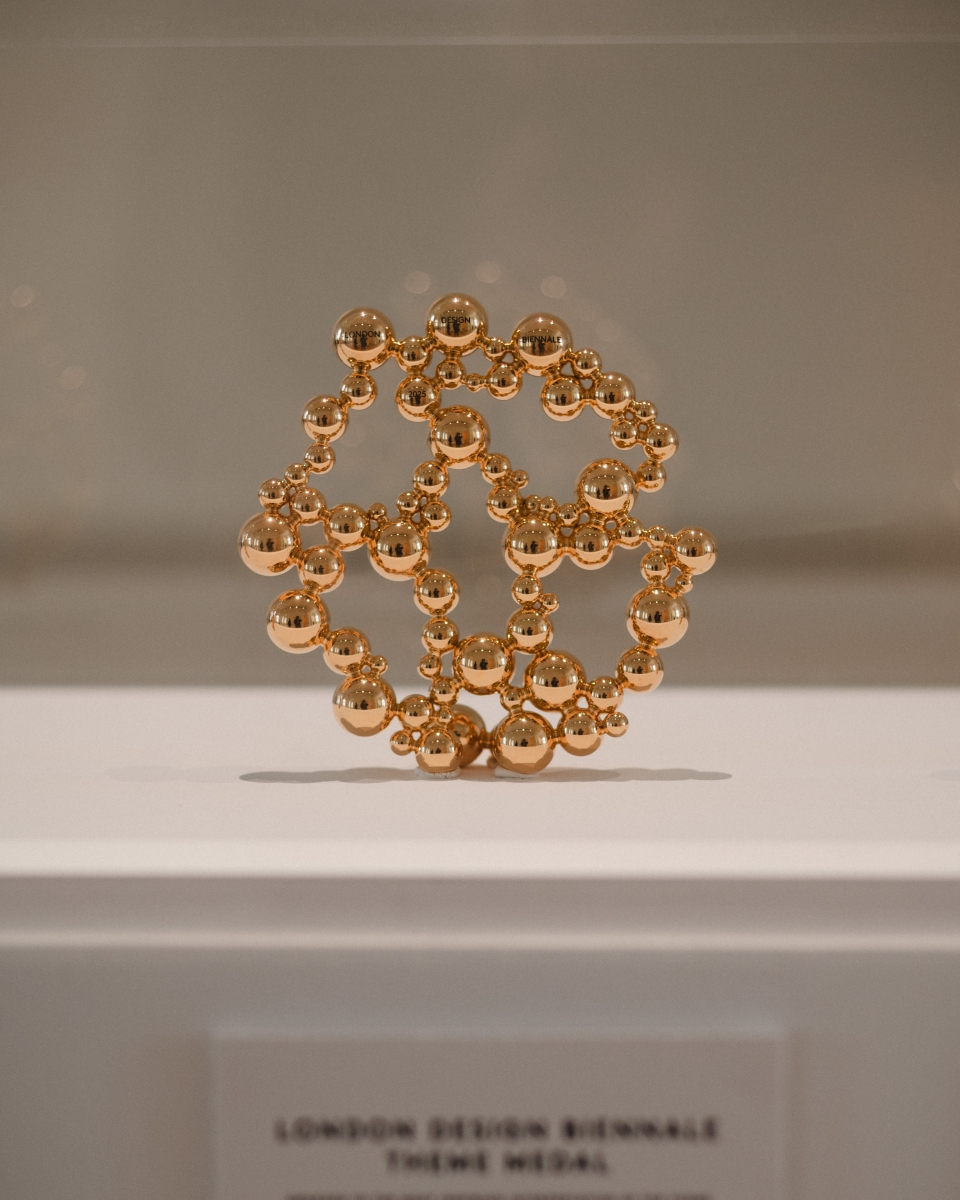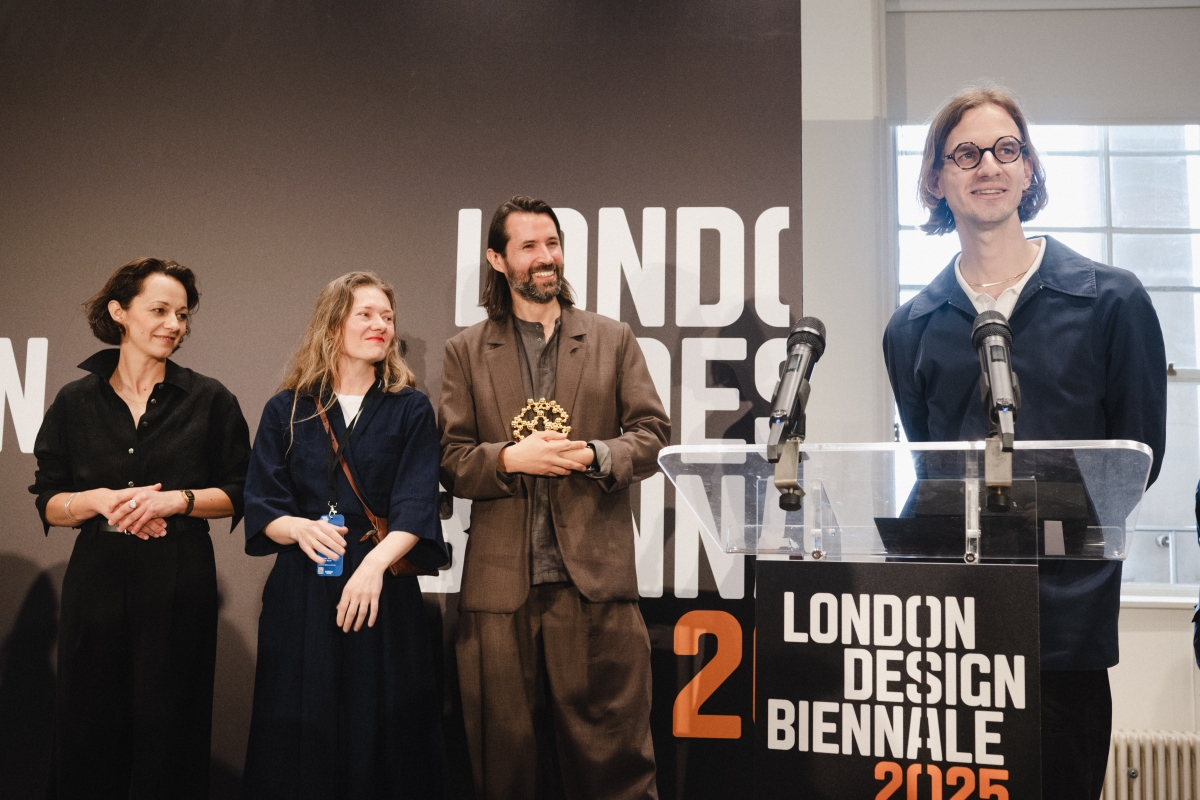
The Polish Pavilion at the London Design Biennale 2025 has been awarded the prestigious Theme Medal for Records of Waiting – recognized as the most inspiring interpretation of this year’s Biennale theme. Opening on 5 June, the installation by Jakub Gawkowski, Monika Rosińska and Maciej Siuda transforms the intangible experience of the passing of time into the material substance of a sculpture installation. The curatorial team draws on the woodcarving traditions of Poland’s mountain regions and uses ornaments to visually represent the process of waiting. Waiting is considered to be both a purely aesthetic and political experience. Often used as a form of control, waiting can also be reclaimed as a space for empowerment. The exhibition organised by the Adam Mickiewicz Institute will be open until 29 June 2025.
The London Design Biennale is one of the most important international events devoted to design and its role in shaping the contemporary world. The fifth edition takes place under the theme “Surface Reflections”, which invites creators to explore how personal experiences shape creative processes and contemporary design. It was precisely for its powerful response to this theme that the Records of Waiting curatorial team received the Theme Medal from the international jury.
– I warmly congratulate the curatorial team – Jakub Gawkowski, Monika Rosińska and Maciej Siuda – on receiving this prestigious award – added Hanna Wróblewska, Minister of Culture and National Heritage of the Republic of Poland. This exhibition powerfully connects traditional craftsmanship with a contemporary social message. It shows how heritage forms rooted in local culture can speak with global resonance – about inequality, time experienced unevenly, and the realities that shape our daily lives.
– We all wait – but not everyone gets to wait equally – explain the curators. It is the structures of the state and capital that determine who waits and for how long. To understand waiting not just as a form of inaction, but as a social concern and individual experience, we brought together two parallel perspectives. The first rests on statistical data reflecting the hard infrastructure of waiting: queues for legal documents, permits and appointments. The second is based on the intimacy of personal storytelling, which reveals its affective conditions of frustration, boredom, anxiety, resignation, but also anticipation. Each part of the installation, shaped by the hands of craftsmen, as well as teachers and students from various schools in Zakopane, relies on highly detailed ornamental patterns to reflect the duration and the intensity of those scenarios, thus creating an embellished landscape of a society in wait.
– This is a truly special moment: just two years after the success of The Poetics of Necessity, which won the Biennale’s main prize in 2023, the Polish Pavilion is once again being recognized with a medal – said Olga Wysocka, Director of the Adam Mickiewicz Institute, which is presenting the Polish Pavilion at the Biennale for the fifth time. We’re proud that “Records of Waiting” captured the jury’s attention. What we often think of as wasted time – waiting – becomes here a space for deep reflection. The project also highlights the power of research-based design to speak to real social issues: inequality, frustration, and the emotional landscape of everyday life, as experienced in Poland and far beyond.

London Design Biennale award ceremony. Fot. Kuba Celej / IAM
The starting point for Records of Waiting is the paradox of our contemporary relationship with time. Although our reality is defined by constant time scarcity and an unforgiving pace, an equally common experience is that of enforced waiting – moments when we are stripped of control and agency over how our time is spent. The curatorial team explores the many layers of this phenomenon. By using ornament as a visual language to represent minutes, hours, and months, the exhibition reframes waiting as a vital, yet still underexplored, social condition.
The hand-carved wooden installation on view in the Polish Pavilion portrays twelve everyday scenarios from contemporary Poland in which waiting plays a central role. These include long hours spent in traffic jams, weeks of waiting for rainfall during drought, years spent repaying a mortgage, and the drawn-out uncertainty of awaiting a residency permit or a psychiatric appointment in the public healthcare system.
The project draws inspiration from the highlander woodcarving tradition of southern Poland—an artisanal practice that began with shepherds who, during long days in the mountains or winter months indoors, carved intricate patterns into everyday objects. Using this cultural heritage as a framework for deeper reflection, the exhibition demonstrates how material traditions from the past can be reimagined to tell stories of modern inequality, tension, and the experience of time.
The exhibition is complemented by research materials gathered in the lead-up to the installation’s creation. On the surrounding walls, visitors will find a selection of traditional highlander carving patterns, each accompanied by the average time required to complete it. Alongside these are data and personal narratives illustrating how waiting is experienced across different social groups – combining statistics with lived stories. Together, they lend a tangible and measurable quality to the passage of time – something we often move through unconsciously, without pause or reflection.

London Design Biennale award ceremony. Fot. Kuba Celej / IAM
Records of Waiting
- Place: Polish Pavilion at the London Design Biennale 2025
- Dates: 5–29 June 2025
- Curatorial and research team: Jakub Gawkowski, Monika Rosińska, Maciej Siuda
- Design: Maciej Siuda Pracownia
- Graphic design: Noviki
- Woodcarvers: Józef Bukowski, Anna Bukowska, Wojciech Bachleda-Dorcarz, Magdalena Bilczewska-Wiśniewska, Jan Kassowski, Michał Kassowski, Szymon Kassowski, Stanisław Kośmiński, Wojciech Łacek, Andrzej Mrowca, Marcin Rząsa, Franciszek Rząsa, students of Antoni Kenar Visual Arts Secondary School in Zakopane, students of Władysław Matlakowski Construction School Complex in Zakopane
The Adam Mickiewicz Institute has been showcasing Poland’s design solutions during the London Design Biennale for several years now. In 2023, the Polish Pavilion, with its “Poetics of Necessity” exhibition, won the prestigious top prize at the London Design Biennale. The acclaimed project by Zofia Jaworowska, Petro Vladimirov and Michał Sikorski was dealing with issues of assistance and cooperation in reaction to the war raging in Ukraine. In 2021, in turn, the Adam Mickiewicz Institute showcased “The Clothed Home: Tuning in to the Seasonal Imagination” exhibition by Alicja Bielawska, curated by Aleksandra Kędziorek. Since then, the exhibition became highly popular and was presented, inter alia, at the Design Biennale in Ljubljana, at the Architecture Triennale in Lisbon and at the Vilnius Gallery Weekend. It is also scheduled for another presentation at the Seoul Museum of Craft Art.
The project is co-funded by the Ministry of Culture and National Heritage of the Republic of Poland.


